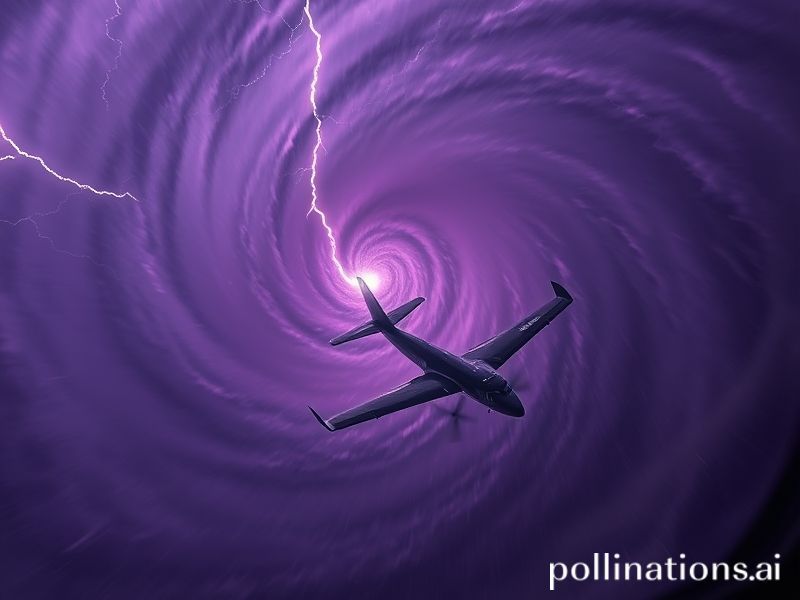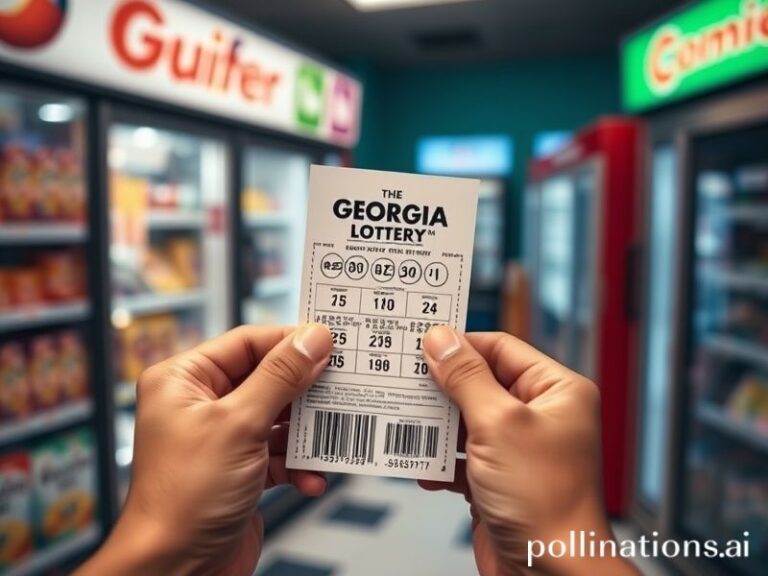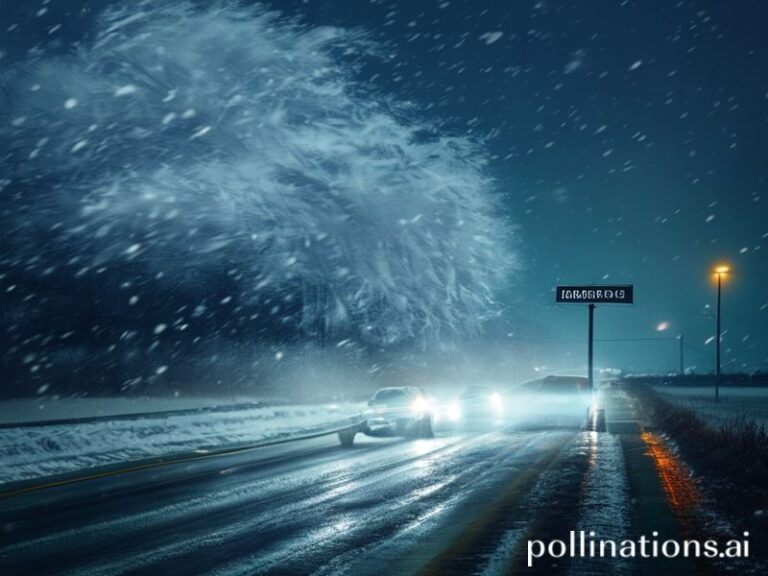Tropical Storm Gabrielle’s World Tour: How One Cloudy Drama Plays to Every Nation’s Script
Storm Gabrielle, still politely calling itself a “tropical storm” while auditioning for full-blown hurricane status, has been doing the rounds like an unwanted houseguest who insists on rearranging the furniture and drinking all the good rum. Born somewhere east of the Lesser Antilles, Gabrielle has spent the past week sashaying across the Atlantic, flirting with half a dozen coastlines and reminding every insurer from London to Lagos why actuarial tables now read more like existential poetry.
The immediate drama is localized—Caribbean islands are batiquing their shutters, cruise ships are performing abrupt U-turns, and the fine citizens of Puerto Rico have restocked their generators with the resigned air of people who know the grid’s sense of humour. But Gabrielle’s real talent is as a global metaphor: she is the latest unpaid intern in Climate Change, Inc., delivering PowerPoint slides in 120-kph gusts. From Geneva, where reinsurance giants tally up this year’s “secondary perils,” to Singapore, where container captains reroute around the new Bermuda Triangle of volatility, Gabrielle is less weather event than quarterly-earnings footnote.
Meanwhile, the European Centre for Medium-Range Weather Forecasts—an outfit whose name alone could lull you to sleep—has been pinging every finance minister on the continent. Their message, stripped of jargon: expect higher bread prices because Black Sea wheat is once again competing with storm-curdled Caribbean sugar for cargo hull space. In other words, your morning croissant may soon cost an extra twenty euro-cents, courtesy of a cloud system you can’t pronounce and will never meet. If that isn’t globalisation served with a twist of lemon-scented irony, what is?
Over in Beijing, state meteorologists are running Gabrielle through supercomputers named after mythical beasts. They aren’t worried about direct landfall, but they are fascinated by how the storm’s moisture plume might eventually slingshot across the Pacific and crash next month’s Mid-Autumn Festival with unseasonable downpours. Nothing ruins mooncakes quite like soggy symbolism. The People’s Daily has already rehearsed the headline: “Foreign Storm Disrespects Chinese Tradition,” which may be the first time a weather system has been accused of cultural insensitivity.
And then there’s the geopolitical subplot. Washington has pre-emptively declared an “emergency” for the U.S. Virgin Islands, a phrase that translates in bureaucratese to “open the spigot of federal funds before the other party notices.” Brussels, not to be outdone, has dispatched its brand-new “Humanitarian Air Bridge,” a fleet of Airbus A400Ms painted an optimistic shade of sky-blue that will almost certainly clash with the grey reality on the ground. Both gestures are generous, televised, and timed to coincide with the UN General Assembly, where Gabrielle will be name-checked at least as often as “multilateral cooperation.” Somewhere in the delegate lounge, a small island ambassador is practicing the weary smile required when powerful countries apologize for your weather.
Back in the private sector, catastrophe-bond traders—yes, that’s a real job—have spent the week refreshing their Bloomberg screens like teenagers waiting for concert tickets. Each wobble in Gabrielle’s eye wall translates into basis-point spasms that determine whether a pension fund in Norway gets to build a new swimming complex or merely patch the old one. Nothing says late-stage capitalism quite like placing leveraged bets on the exact minute someone else’s roof flies off.
Yet for all the satellite imagery and emergency alerts, Gabrielle is ultimately a reminder that Earth still holds the monopoly on theatre. We can insure, hedge, forecast, tweet, and virtue-signal, but the planet will always have the better punchline. When the skies finally clear, the storm will retire to meteorological folklore, filed somewhere between “Unpronounceable 2004 Cyclone” and “That One Which Cancelled My Honeymoon.” Insurance premiums will tick up, commodity markets will exhale, and another swirl of warm water will already be eyeing the buffet.
Conclusion: Gabrielle may not achieve headline-hurricane status, but she has already succeeded in her true role—part-time destroyer, full-time mirror. In her churning clouds we see supply chains, election cycles, actuarial dread, and the faint but persistent hope that next year we’ll remember to buy stronger screws. Until then, keep your umbrella handy and your cynicism closer; the forecast calls for scattered ironies with a 70% chance of existential drizzle.







